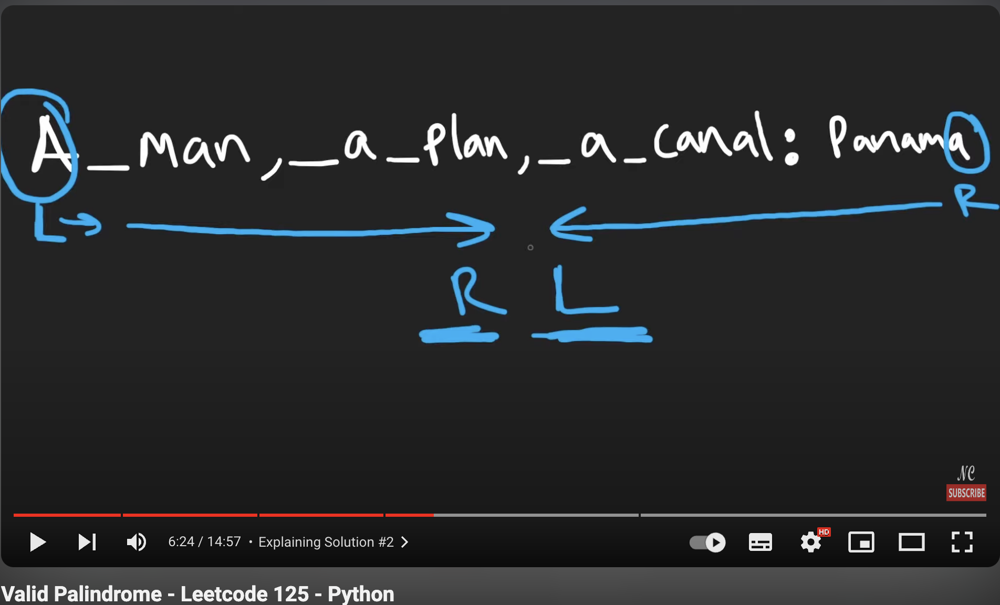Intuition
A phrase is a palindrome if, after converting all uppercase letters into lowercase letters and removing all non-alphanumeric characters, it reads the same forward and backward. Alphanumeric characters include letters and numbers.
Given a string s, return true if it is a palindrome, or false otherwise.
Example 1:
Input: s = “A man, a plan, a canal: Panama” Output: true Explanation: “amanaplanacanalpanama” is a palindrome. Example 2:
Input: s = “race a car” Output: false Explanation: “raceacar” is not a palindrome. Example 3:
Input: s = “ “ Output: true Explanation: s is an empty string “” after removing non-alphanumeric characters. Since an empty string reads the same forward and backward, it is a palindrome.
Constraints:
1 <= s.length <= 2 * 105 s consists only of printable ASCII characters.
Approach
-
Using functions (filtering w/ isalum(), converting lower() and check reverse)
-
Two pointers

ref: https://www.youtube.com/watch?v=jJXJ16kPFWg&ab_channel=NeetCode
Complexity
-
Time complexity: O(N)
-
Space complexity: O(1)
Code 1
class Solution(object):
def isPalindrome(self, s):
"""
:type s: str
:rtype: bool
"""
newStr =""
for c in s:
if c.isalnum():
newStr += c.lower()
#print (newStr)
return newStr == newStr[::-1]
Code 2
class Solution(object):
def isPalindrome(self, s):
"""
:type s: str
:rtype: bool
"""
#Using two pointers
left_ptr, right_ptr = 0, len(s)-1
while left_ptr < right_ptr :
while left_ptr < right_ptr and not self.isAlNum(s[left_ptr]):
left_ptr += 1
while left_ptr < right_ptr and not self.isAlNum(s[right_ptr]):
right_ptr -= 1
#Check this first wheater it is same or not
if s[left_ptr].lower() != s[right_ptr].lower():
return False
left_ptr, right_ptr = left_ptr +1, right_ptr -1
return True
def isAlNum(self, c):
# ASCII code base comparison
return ('A'<=c<='Z' or 'a'<=c<='z' or '0'<=c<='9')